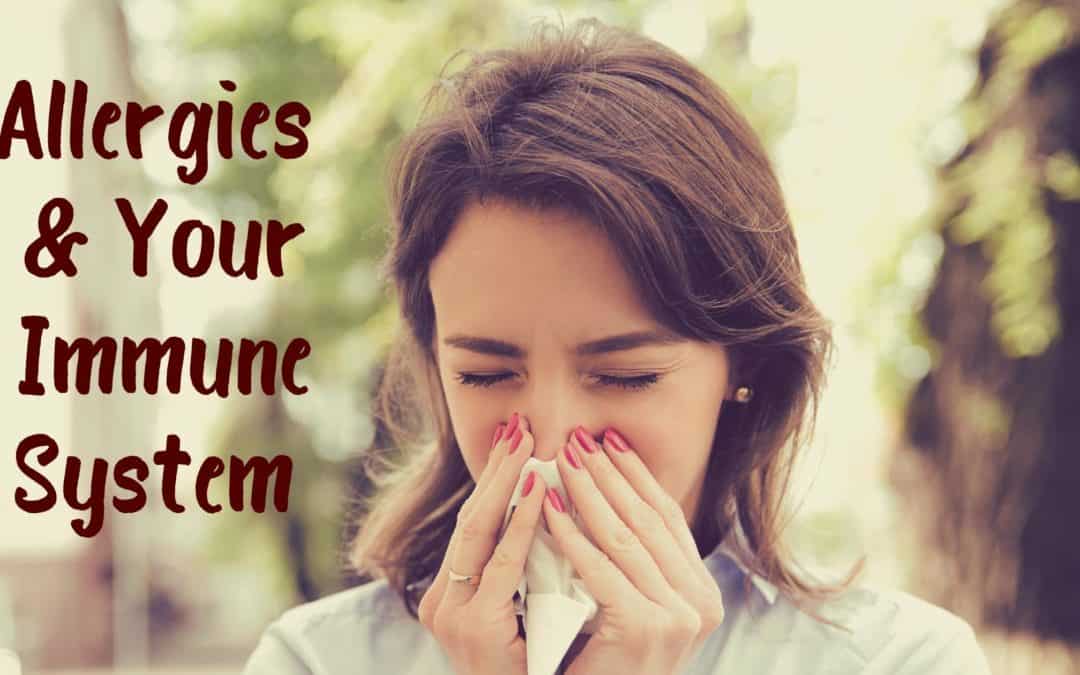Spring is officially here! A highly awaited time, Spring is marked by bluer skies, blossoming plant life, and of course – warmer weather. But many of us also know that Spring time also means allergy season! According to the Asthma and Allergy Foundation of America, more than 50 million people experience various types of allergies every year. The most common symptoms associated with seasonal allergies include sneezing, runny nose, congestion, watery eyes, itchiness, and a scratchy throat. These symptoms can be experienced mildly to severely which is often frustrating to navigate on a daily basis. Though seasonal allergies cannot be cured, they can be effectively managed in ways that alleviate symptoms!
What Causes Seasonal Allergies?
Also referred to as allergic rhinitis or hay fever, seasonal allergies are experienced at specific times of the year when certain substances are pervasive in the environment. The most common substance, or allergen, that causes seasonal allergies is pollen which is made by wind pollinated plants: flowers, trees, grass, weeds etc. When the weather is drier, pollen is able to persist in the environment for a longer time period, activating allergies more acutely. Other allergens that are common include pet dander, mold, and fungi.
Seasonal allergies are produced by the body’s immune system reacting to specific substances that it comes into contact with. The immune system mistakenly identifies the particular allergen that you are affected by as harmful. This triggers its response system that is charged to fight this threat, preventing it from causing sickness. The immune system creates antibodies to neutralize the substance, and these antibodies then detect it every time it comes into contact with the allergen. When the allergen is encountered (inhaled, touched, ingested etc.), the immune system releases chemicals like histamine and other chemical mediators into the bloodstream. This then causes the symptoms we associate with allergies. Though this process cannot be stopped, there are ways you can reduce the impact of symptoms.
Treatment Options
Seasonal allergies are most commonly treated with a regimen that combines over the counter mediations and homeopathic solutions. There are various kinds of nonprescription medications that people typically use including:
- Antihistamines: target the common symptoms for relief and are taken Popular examples include: Claritin, Zyrtec, Allegra, etc.
- Decongestants: work to specifically alleviate nasal congestion. Decongestants come in oral medications or nasal spray.
People often incorporate both antihistamines and decongestants to address all symptoms and provide all-around relief. In addition to these types of medications, a few other natural remedies that are commonly used include:
- Rinsing nasal passages with a simple saline solution to reduce congestion. Different instruments can be used like a neti pot or squeeze bottle. This reduces mucus accumulation, draining the pathways and alleviating congestion.
- Steaming: another way to tackle congestion is by using a humidifier or basic pot to create steam that is inhaled, clearing the nasal pathways.
- Drinking tea, herbal mixtures, honey etc. to alleviate sore throat.
These self-managed strategies can drastically reduce symptoms and the impact of seasonal allergies on daily living. It can take time and exploration to figure out which types of medications and practices work best for you.
Tips to Manage Allergies
In addition to medications, there are measures you can implement to further manage seasonal allergies. A few useful tips include the following:
- Know the pollen count. You can look up projections for pollen count in your environment which allows you to better prepare. You can do this by checking in with your local weather sources or going online. When pollen is set to be high, be sure to take medications in advance, avoid being outdoors or minimize your time.
- Closing doors and keeping windows shut can also help reduce your exposure to pollen during peak times.
- Other ways to reduce your exposure include limiting the activities you do outdoors when pollen is high (exercise, gardening, walks etc.).
- Keep the air indoors as purified as possible by using a dehumidifier, cleaning carpets, cleaning air conditioning units etc.
Spring is indeed an exciting time of the year. The changing of seasons into brighter, warmer, and longer days should be enjoyed and maximized. You can even if you experience allergies. You can best transition into Spring by proactively managing your allergies. Contact us today to schedule an appointment!

